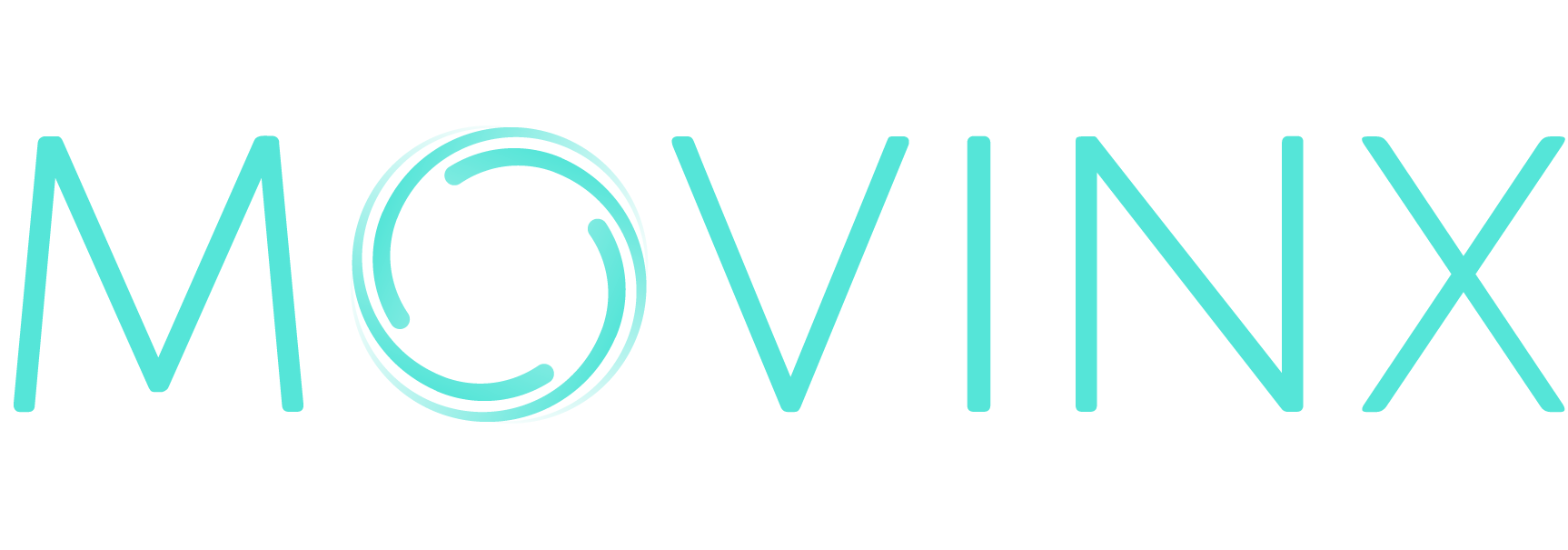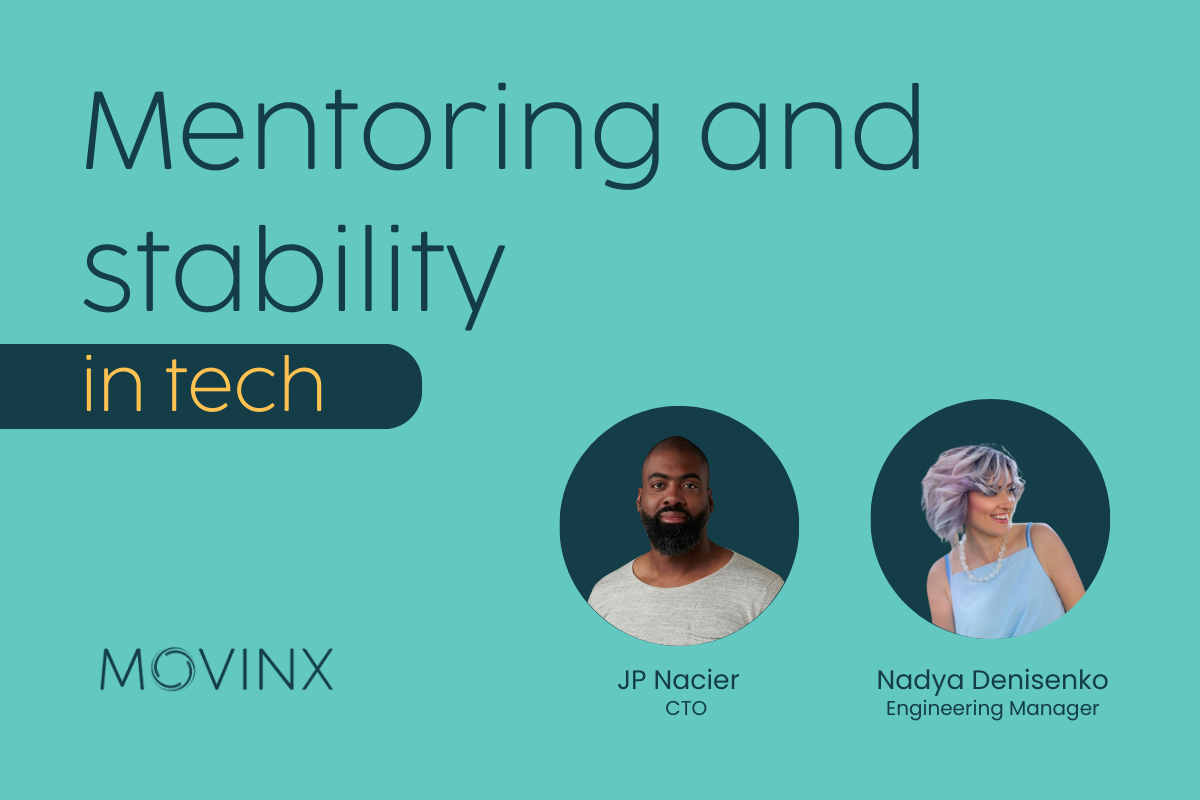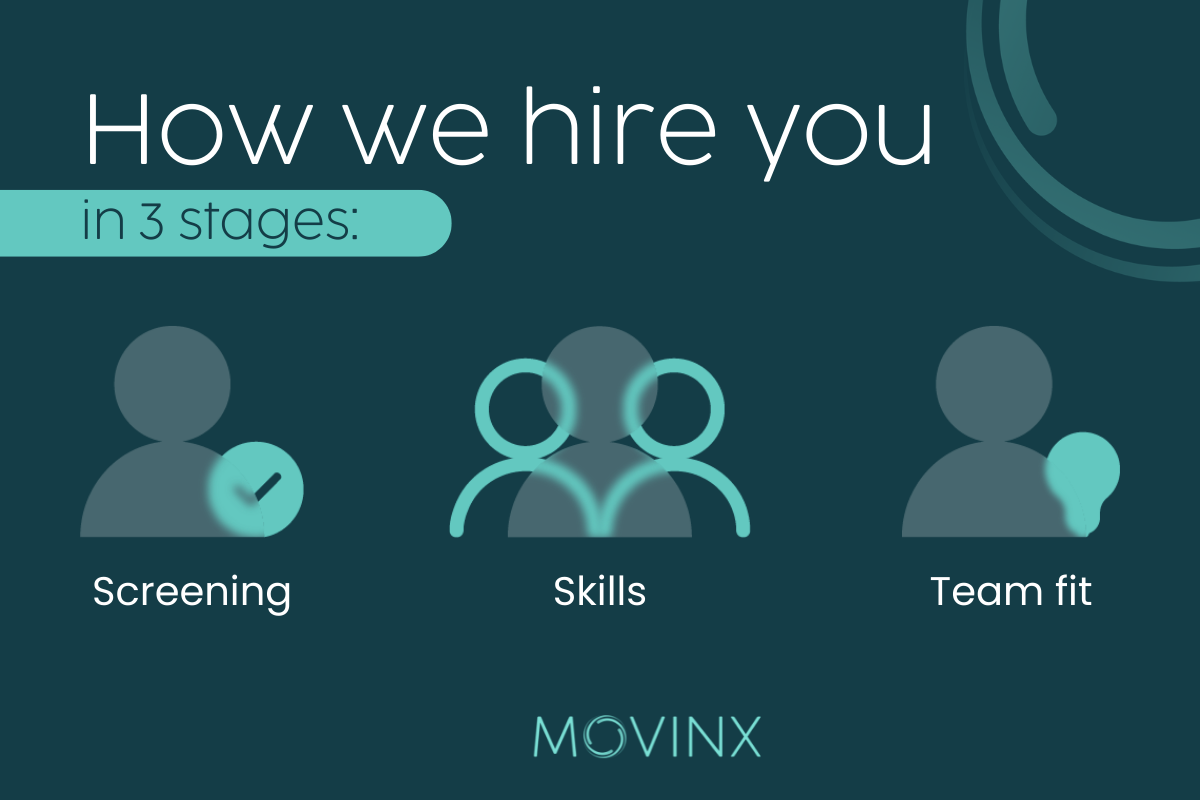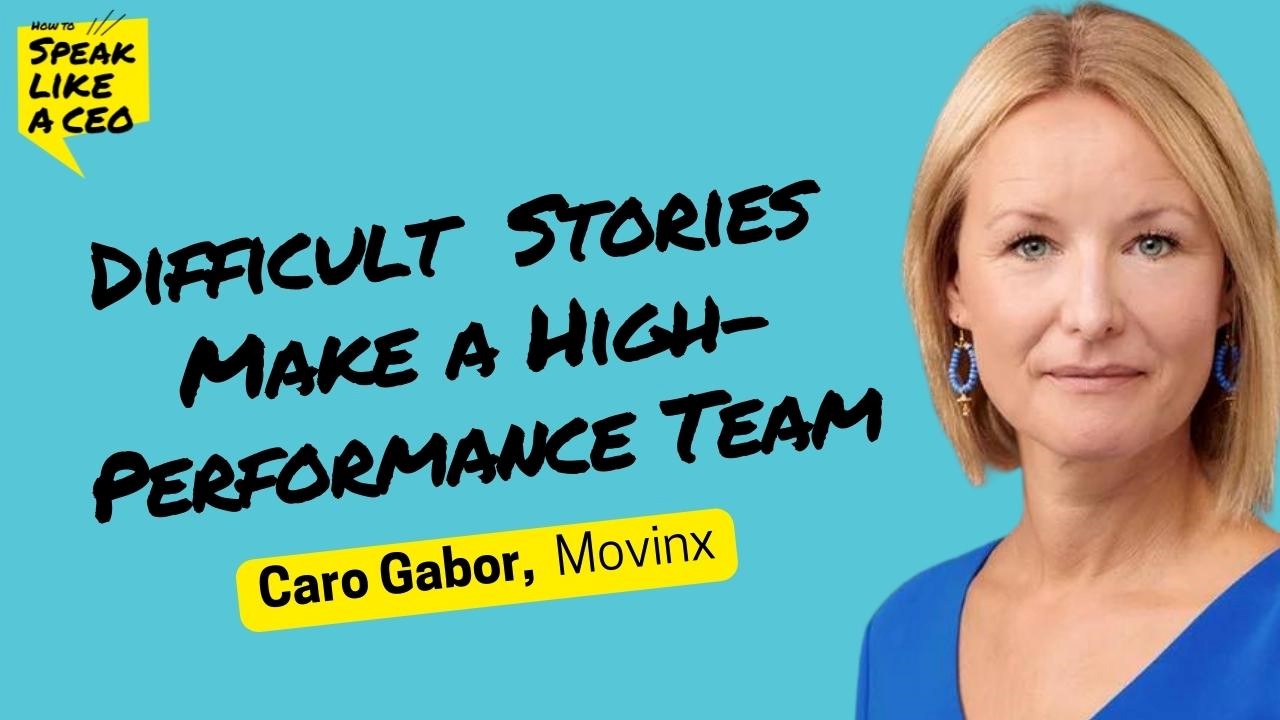Mentoring and team stability in tech
By JP Nacier, Chief Technology Officer & Nadya Denisenko, Engineering Manager.
Challenging employees to grow and develop new skills, and fostering a clear channel of communication: this is how tech managers are building stability and mentorship at Movinx.
Mentoring and team stability.
Movinx is small but it has a big mission and bigger ambitions. Our team managers wear many hats, and outside their core duties, they are also charged with mentoring tech engineers. Mentoring opportunities are highly valued by tech candidates, and at Movinx we know that. JP, the CTO and Nadya one of three Engineering Managers, share how they help their engineers continuously grow. Their tactics help build trust, stability, and co-mentoring on the team and company-wide levels.
A space for asking questions.
It might sound obvious, but we start mentoring by creating a space for it. We both agree that setting the context and patience with the person you are mentoring is key.
A lot of our team is made up of more senior employees and managers, but that doesn’t mean they’re all experts on every subject. If a team member is curious about learning a new method or exploring a new skill, they probably don’t have all the contextual details or lingo yet. It’s important for mentors to be patient as they learn, take time to explain the details that might seem trivial, but for a newcomer are essential.
Nadya uses a bubble analogy to get mentors and mentees on the same page: are our contextual bubbles or languages touching yet? If not, we need to take time to understand each other’s context and give as many details as possible until we’re on the same plane.
Movinx is a remote-first company, and to build these mentor/mentee relationships, we both use one-on-one meetings as opportunities to create a space for mentoring. JP leverages one-on-ones to talk about personal growth and creates actionable takes for team members to grow against; small, incremental things where it’s possible to see how they’re evolving in an area that interests them.
Nadya likes the one-on-one approach too but also fosters opportunities for group mentoring. Recently several members of her team expressed interest in learning more CI/CD tools. Together with Nadya, the team set up a rotating task through every team member to design and develop these pipelines; it’s an opportunity to learn and share knowledge.
Internal and external resources.
A competitive workplace uses both internal and external resources. We use a few different techniques across teams and across the industry to keep our ideas fresh, our skills sharp, and our teams moving forward.
Fostering cross-polination
Movinx is a growing business, yet still relatively small. JP likes to use this to his advantage as a manager and foster cross-pollination between teams and team members. Team members have their primary job responsibilities, but if a DevOps engineer wants to learn data engineering, why shouldn’t they be able to develop those skills? By joining the data engineers on a light project or receiving some coaching or mentoring from them is a fluid way for team members to continuously learn skills and methods from their colleagues.
Venturing out and bringing the outside in
The learning isn’t limited to in-house knowledge; both of us try to use all the tools available to bring knowledge to our team, or to send them off to learn more. Whether that’s conferences, seminars, courses or simply networking events – these are just as important as in-house learning.
Encouraging team members to attend these and helping them select conferences that suit their profile and goals is part of her mentoring strategy. Bringing consultants in to help teach the team a specific skill or adopt a new process is a technique of JP’s, which helps the team ramp things up. The connections, methods and knowledge are useful for team members in the present but also in the future.
Creating stability and trust.
In a tech landscape where data engineers are highly sought after, creating a work culture based on stability and trust is a high priority for us. As managers, we’re there to see our team grow and develop, with us and beyond. It might feel counter-intuitive, but you need to develop your team fearlessly, it is exactly the investment in your team that will keep them with you, not make it more attractive for them to leave.
Nadya agrees and doesn’t hesitate to be transparent with her team wherever possible. She even will delve into topics that might be uncomfortable, like how to search for jobs or interview questions. This fosters openness and trust; if at some point an engineer does decide it’s time to leave, they are also equipped with the tools they need to find a new job. It’s part of being a good manager and mentor to guide team members to grow.
The Movinx culture.
At Movinx, recruiting the right team member is only the beginning (check out our values!). Our onboarding process is friendly, thorough, and human; we want our teams to feel like a team, and take mentoring tech workers seriously. If this is a work environment you’d like to join, check out our current opportunities page.
Related Posts
Why feedback is crucial in recruitment
The interview journey is part of a candidate's professional development. Seeking and giving feedback strengthens the system and keeps everyone growing together.
Workcation in Spain? Why not: it’s the Movinx way.
Flexible working has become part of the DNA for many of us, so how do we make it our own at Movinx? By making it truly flexible. We give teams and employees the freedom to decide how they’re most effective and set the routine they want. Our very own People team showed us how it’s done when they travelled to Spain for a ‘workcation’. Keep reading to find
How we hire you
Our recruitment process is the first opportunity we have to show you who we really are at Movinx – that’s why we take it really seriously! Read more about our three recruitment stages.
Difficult stories make a high-performance team
"Our best marketing employee is Elon Musk!", says Caro Gabor with a twinkle in her eyes. Musk’s goal of fixing the "incredibly inefficient“ car insurance market while making a lot of money from it has gotten the attention of the car industry.





